How to Reduce Noise Pollution?
We can Reduce Noise pollution by turning off appliances when not in use, use of earplugs, lowering the volume, planting more trees, regular maintenance of vehicles and machines etc. By controlling noise we can control negative health effects that noise pollution has on everyone.
What is Noise?
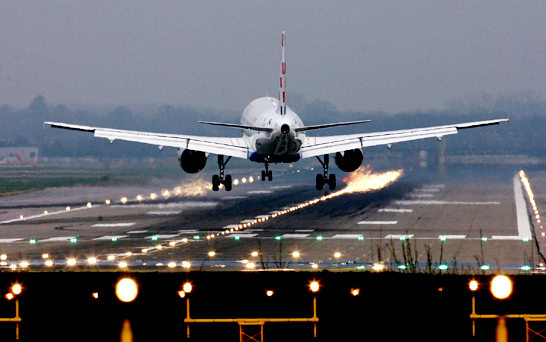
Noise is unwanted sound. A sound which has unpleasant effects and discomfort to ears is called noise. Generally sound generated by vehicles, horns, loudspeakers, planes, construction etc. are reasons for noise pollution.
It is measured in decibel (dB). Normally noise which is less than 115 dB is tolerable (for a shorter period).
Noise pollution is also considered as environmental pollution although it is not as harmful as air, water or soil pollution effects of noise pollution for a longer period can be severed.
Follow us on LinkedIn
How to Reduce Noise Pollution?
We can reduce noise Pollution by following below mentioned Tips:
Turn off Appliances at Home and offices
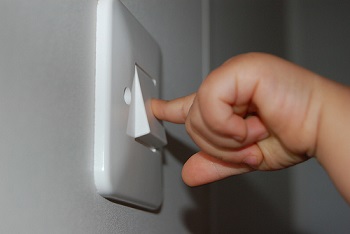
We can turn off home and office appliances when not in use such as TV, games, computers etc. it can create unnecessary stress on ears. We can save electricity also when we turn them off.
Shut the Door when using noisy Machines
We can shut the door after we turn on dishwashers or washing machines for rooms where it is kept or we can turn them on before leaving the house so that overlapping of exposure to loud noises can be reduced
Use Earplugs
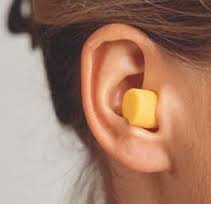
Use of earplugs or earmuffs can bring down loud noises to a manageable level. Earplugs are small inserts that fit into our ear canal. And earmuffs fit over the entire outer ear to form an air seal keeping ears safe from loud noises.
Follow @PerfectPolluconLower the volume
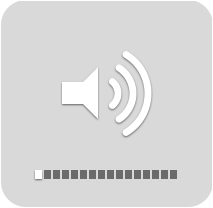
We can listen to songs, radios, TVs in lower volume when listening from headphones or speakers.
🎧 Top Noise-Canceling Headphones
For a quieter environment, consider these highly-rated noise-canceling headphones:
- Sony WH-1000XM5 – Industry-leading noise cancellation & premium sound.
- Bose QuietComfort 45 – Comfortable fit with excellent noise-blocking.
- Apple AirPods – High-fidelity audio with seamless Apple integration.
Stay away from Noisy area
Noise producing industries, airports, vehicles should be far from residential areas as it is very dangerous for infants and senior citizens.
Follow the Limits of Noise level
Community law should check the use of loudspeakers, outdoor parties as well as political public announcements.
Control Noise level near sensitive areas
There should be control on noise level (Silent zones) near schools, hospitals. Place noise limits boards near sensitive areas.
Go Green by planning trees

We can plant more trees as they are good noise absorbents. According to studies, it can reduce noise by 5 to 10 decibels Db around them.
Create Healthy noise to eliminate unwanted noise
If we can’t eliminate unwanted noise coming from outside then we can create healthier noise such as music, singing birds or waterfalls in homes or offices.
Use Noise absorbents in noisy machineries
We can check for pieces of machinery which are creating noise due to vibrations and put some noise absorbents to reduce noise.
Use Proper Lubrication and Better maintenance

We can use proper lubrication as well as better maintenance of machines to reduce noise pollution and improve efficiency. It reduces friction between movable parts and helps to reduce noise.
Notify Authorities about Disobedience of Noise Rules
We can notify government agencies if someone is not following rules and regulation regarding noise levels.
Regularly check noise levels
Regularly checking noise level in an industrial complex and indoor to keep noise level within the limit.
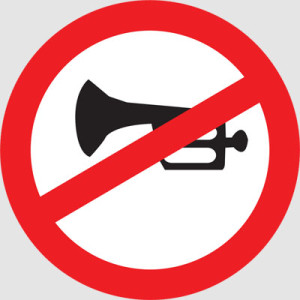
It is necessary to control the noises created around us. It is necessary to aware people around us through various mediums. We can start from ourselves to spread awareness about noise pollution and its effects on human and the environment. Limit for noise at daytime is 55 dB and in the night it is 30 dB to avoid health effects.
Noise Level Estimator
Learn more about noise level Monitoring
Governments are taking steps to reduce noise pollution in mostly all countries which is a very good sign.
We can follow below mentioned tips for how to reduce noise pollution.
Also you would be interested in Ways to reduce air pollution from factories.
What are effects of Noise Pollution?
- Constant exposure to loud noises can damage eardrums and loss of hearing. It also reduces the sensitivity of eardrums to pick up small sounds.
- Noise pollution can affect health and shows signs of aggressive behaviour, sleeps disturbance, increases in stress level, fatigue
- It can create hamper sleeping pattern (it is recommended to take sound sleep and not noise sleep :p)
- Sound Pollution can increase blood pressure, heartbeat, headache
- Loud noise affects not only on humans but also on pets. They can behave more aggressively if exposed to loud noises for a longer duration
- Interference or disturbance in conversions can result in misunderstanding
Read here how to measure noise at workplace?
Also read more about what is Noise Impact Assessment
If together we could follow at least three tips then we can say that the objective of this article is successful.
What do you think? let us know by commenting below if you know any other tips to reduce noise pollution.
Perfect Pollucon Services has written this post. They are Professional Environmental Consultant in Mumbaiand offer Environmental Monitoring services.
Recommended Noise Reduction Products From Perfect Pollcuon Services
We’ve handpicked some of the best noise-reducing products to help you create a quieter environment.
✅ For Personal Use
🔹 🔊 Sony WH-1000XM5 Noise-Canceling Headphones – Industry-leading noise cancellation for work and travel.
🔹 🎧 Loop Quiet Earplugs – Perfect for sleeping and blocking out unwanted sounds.
✅ For Home & Office Soundproofing
🔹 🧱 Acoustic Foam Panels – Helps absorb sound waves and reduce echo.
🔹 🚪 Door Draft Stopper – Seals gaps under doors to prevent sound leakage.
🔹 🛏️ Noise-Blocking Curtains – Heavy blackout curtains to block outside noise.
✅ For Better Sleep & Focus
🔹 🔊 LectroFan White Noise Machine – Creates soothing background noise to mask unwanted sounds.
🔹 🛌 Hatch Restore Smart Sleep Machine – Combines white noise, light therapy, and a sleep routine in one device.

Anil Shelke is the Executive Director at Perfect Pollucon Services with 30+ years of expertise in pollution control, environmental audits, hazardous waste management, and ISO 14001 implementation. He specializes in helping industries align with CPCB/SPCB regulations.
Share this Article with your family and friends :
· Plant trees as sound barriers.
· Use soundproof curtains.
· Maintain machinery regularly.
· Install noise barriers.
· Limit noisy activities.
· Use noise-reducing devices.
· Educate and raise awareness.
· Control traffic noise.
· Implement sound insulation.
· Promote quiet zones.
· Implement stricter noise regulations and enforcement.
· Encourage the use of electric vehicles to reduce traffic noise.
· Design buildings with soundproofing materials and techniques.
· Create more green spaces to act as natural sound buffers.
· Promote community awareness and education about noise pollution.
· Use headphones or earplugs to protect your hearing and reduce exposure to loud noises.
· Maintain and regularly service machinery and equipment to minimize noise emissions.
· Implement noise-reducing measures in architectural and interior design, such as acoustic panels or sound-absorbing materials.
· Encourage responsible behavior, such as avoiding unnecessary honking or loud music in public spaces.
· Promote the development and use of quieter technologies and appliances to reduce noise pollution.
· Install acoustic panels in classrooms and common areas.
· Enforce quiet zones and noise restrictions.
· Promote use of headphones or quiet activities during study time.
· Conduct regular maintenance of HVAC systems to reduce noise from ventilation.
· Educate students on the importance of noise control and respectful behavior.
This article contains affiliate links. If you purchase through these links, we may earn a small commission at no extra cost to you. This helps us keep providing valuable content. Thank you for your support!


Very good
fantastic . very good
Very good information about seminar
Very effective way.
Nice website. Very useful
very informative ..
wow…. What a wonderful information you gave to us about noise
Good information
Thank you 🙂
It’s very helpful
Super in formation
Thank you Kanjarla.
Keep reading.
Its use full to everyone and supper information
Supper information within limited time
its very useful. tks
It was very helpful thanks
This website gave me much information and awared me how to reduce unwanted noise at different places
Thank you Musab.
Keep coming for more.
PPS Team
very informative blog. Sounds are characterized as voyaging vibrations that are heard when they arrive at the ear. While commotion is characterized as noisy, disagreeable sounds that cause aggravation. In any case, there is a contrast between sound and commotion, and the last is making hurtful contamination individuals and the climate’s wellbeing; you can’t smell it and you can’t taste it, which makes it even more hazardous. Clarity Acoustics is an acoustic consulting firm that provides independent advice on noise and vibration control to architects, project managers, engineers, local governments, regulatory agencies, lawyers, facility owners, and the general public.
it help me with me project
Hi Elencia,
Glad you found it useful. Thank you.